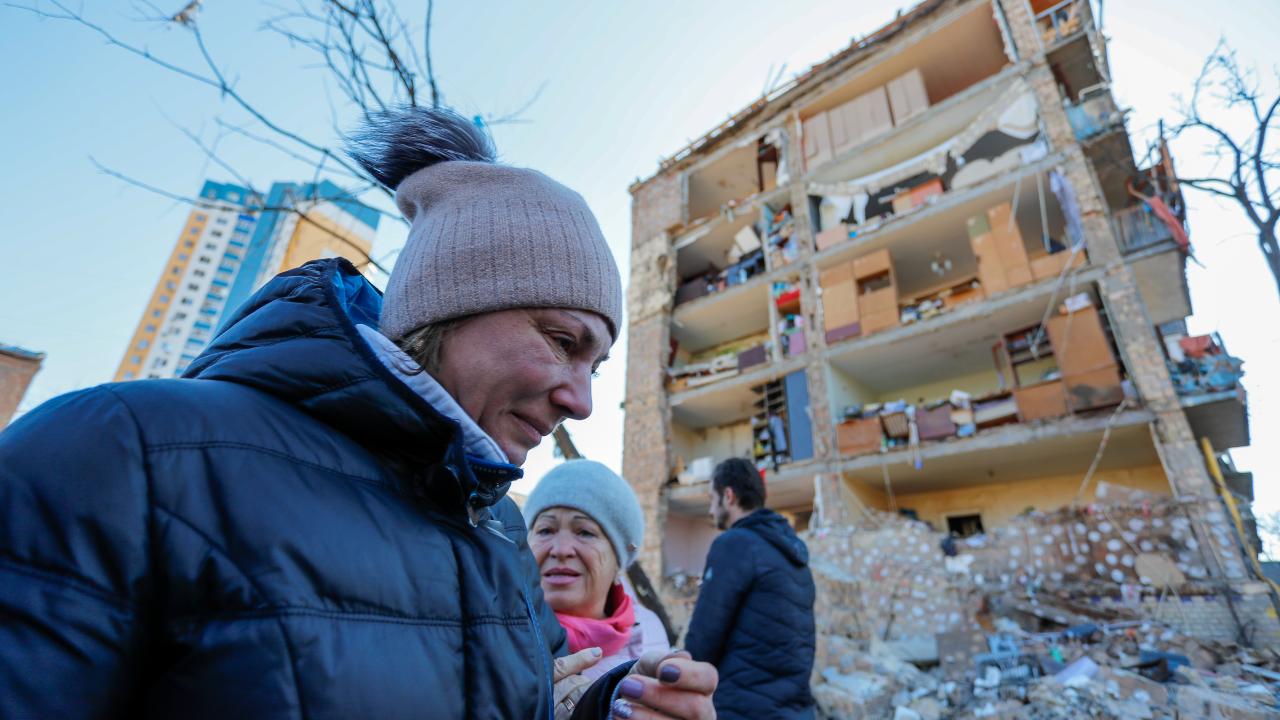For weeks, if not months, we have witnessed a barrage of narratives suggesting that global powers help Russian face-saving following its illegal and unprovoked invasion of Ukraine. It is a position adopted in various forms by European politicians of varying degrees of prominence — from G7 leaders like President Macron of France and Chancellor Scholtz of Germany to analysts and Russian-sympathizing political parties, to Brazil’s President Bolsonaro or India’s Prime Minister Modi.
The common message in various versions of this Putin-pacifying approach is that the only way of ending the hostilities is by forcing Ukraine to agree to some form of concession or defeat.
Allowing Russia to get away with mass murder and ethnic cleansing has significantly more far-reaching consequences than just the suffering of tens of millions of Ukrainians (although the notion of deliberately causing human suffering of such magnitude in the 21st century is in itself despicable.)
The wider world will suffer as well, with the turmoil potentially lasting decades, greatly undermining the quality of life of hundreds of millions, if not billions of people.
The world is struggling with a post-pandemic economic slowdown, inflationary pressures, continued and accelerating climate change, and food and energy supply issues.
So let us additionally imagine a scenario where Russia re-emerges with Putin’s face intact.
Russia has abused the global energy trade for years (in one recent example, it’s meddling with gas supplies to Europe in 2021 sent natural gas prices skyrocketing.) It no longer even denies that it uses energy as a tool of pressure: not just with gas supplies to Europe, but also enriched uranium for the United States. With his military aggression unpunished, Putin’s energy blackmail will continue: why would Russia refuse the windfall revenues from the distorted markets it can manipulate, when it also allows it to reap political benefits?
Food shortages will increase. Ukraine is a major global grain producer and exporter, and Russia’s key competitor in grain and other food exports. The blockade of ports, destruction of storage and export logistics, and looting of grain are therefore not accidental. Ukraine is, or was, a key supplier for the UN World Food Programme, feeding millions in the poorest countries. If Russia kills off competition from Ukraine, it will have even greater leverage to use global hunger as a lethal weapon.
Russia will continue to poison other countries’ internal affairs. For years, it has been attempting to rig elections and has carried out extrajudicial political assassinations. It has promoted corruption and rent seeking in the political and economic life of Western democracies, bribing or insinuating its way into establishments and media, supporting all manner of wild conspiracy theories. At home, it has completed the process of destroying all democratic institutions, imprisoned or killed its opposition leaders, subdued all media, and indoctrinated its population.
Putin will also continue to use one of his favorite weapons: refugees. Direct Russian military action or covert operations have helped force millions of refugees to seek safety in Europe, Turkey, Jordan, and other countries even before the latest Ukraine invasion. As NATO’s Supreme Commander noted in 2016, Putin and his allies helped create and then mercilessly exploited the EU’s Syrian migrant crisis. Now that he has added hunger to bombs, there will be more global exoduses.
But perhaps “off-ramps” will at least bring peace? Again, no.
Russia’s security strategy has always been to surround itself with a “belt of insecurity”, creating conflicts in Transnistria in Moldova, supporting Armenia’s occupation of Karabakh and the war with Azerbaijan, helping defeat pro-democratic forces in the Tajik civil war, occupying South Ossetia and Abkhazia in Georgia in 2008, not to mention two brutal Chechen wars domestically. Then came the Ukraine invasions of 2014 and 2022. A little-noticed flare-up is under way in Tajikistan, which Russia already promised to “defend”. Further afield, Russia undertook full-scale military action in Syria, and has blessed brutal and rapacious private army operations in Sub-Saharan Africa.
Where might these so-called private armies of Russian mercenaries show up next? As many top Russian officials explicitly stated, there is no intention to stop. Helping Russia avoid defeat in Ukraine now would only allow it to rebuild its military capacity, damaged in Ukraine, using its massive energy profits.
Governments near and far will be forced to respond. Defense budgets around the world will surge, just as increased energy prices will hit voters in both developed and developing worlds. Public spending will be reduced, affecting healthcare, education, and social services. Forget new investment in infrastructure and non-military R&D: green economy and climate change-related initiatives will be shelved. As disposable incomes dry up in the West, China’s consumer goods exports and economic growth prospects will suffer.
Such is the price of saving Putin’s face: a poor, insecure, hungry, militarized world.
Are you ready for this world for your children?
Or shall we arm and finance Ukraine now, and let Ukrainians fight for our joint future?
Artem Shevalev is an International Economics graduate from Kyiv National University. He also holds an Executive MBA from London Business School. He served in Ukrainian diplomatic service, moving into public development finance in 2002, spending most of his time since with the EBRD. In 2015-2016 Artem served as the Deputy Minister of Finance for European Integration, launching the state banking reform in Ukraine. He currently sits on the Board of Directors of the EBRD and the Supervisory Board of PrivatBank, the largest bank in Ukraine.




